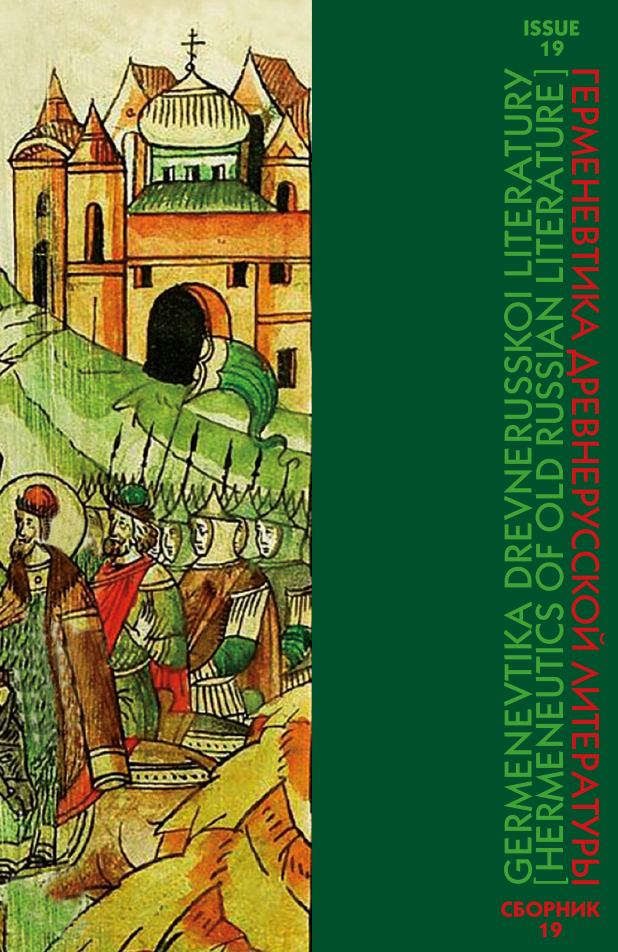Abstract:
The article reveals the interdependence of the most important typological qualities of the Russian professional school — the epic beginning and broad melody and chant — with the development of sacred music of the Middle Ages and folklore. The epic style of the znamenny chant that prevailed in the early period (11th–14th centuries) in many aspects coincides with the bylin epic. At a later period of Muscovite Russia (15th–17th centuries) the melody of Junior edition of the znamenny chant and the development of new lengthy chants — putevoj, demestvennyj and bolshoj — led to recognition of the leading role of melodic beginning. Not earlier than the end of the 16th century this was manifested in folklore, in the genre of lyrical (drawl) songs. Russian Church singing shows that the medieval musical tradition, like the architectural, fresco, iconographic, and hymnographic traditions, preserved its aesthetic and value foundations in the styles of later epochs, forming a typology of musical thinking, the leading trends of the Russian school, and the national mentality. The role of the sacred music in Russian history should be assessed objectively.
References:
- Alekseeva, G.V. Problemy adaptatsii vizantiiskogo peniia na Rusi [Problems of the Adaptation of Byzantine Singing in Russia]. Vladivostok, Dal’nauka Publ., 1996. 380 (In Russian)
- Vladyshevskaia, F. Muzykal’naia kul’tura Drevnei Rusi [Musical Culture of Old Russia]. Moscow, Znak Publ., 2006. 472 p. (In Russian)
- Kristians, “Ot podrazhaniia forme k doslovnomu perevodu: printsipy parallel’noi adaptatsii melodii i teksta vizantiiskikh pesnopenii v slavianskoi traditsii” [“From Imitation of Form to Literal Translation: Principles of Parallel Adaptation of the Melody and Text of Byzantine Chants in the Slavic Tradition”]. Vestnik PSTGU. Seriia III: Filologiia, issue 1 (11), 2008, pp. 26–55. (In Russian)
- Likhachev, S. Razvitie russkoi literatury X–XVII vekov. Epokhi i stili [Development of Russian Literature of the 10th–17th Centuries. Epochs and Styles]. Leningrad, Nauka Publ., 1973. 256 p. (In Russian)
- Narodnoe muzykal’noe tvorchestvo: uchebnik [Folk Music Creativity: Textbook], ed. O.A. Pashina. St. Petersburg, Kompozitor Publ., 2005. 568 p. (In Russian)
- Parfent’ev, N.P., Parfent’eva, N.V. “Istoriia i osnovnye napravleniia razvitiia russkoi dukhovnoi muzyki XX veka” [“History and Main Directions of the Development of Russian Spiritual Music of the 20th Century”]. Lozovaia, I., editor. Vizantiia i Vostochnaia Liturgicheskie i muzykal’nye sviazi. Gimnologiia [Byzantium and Eastern Europe. Liturgical and musical connections. Hymnology], issue 4. Moscow, Progress-Traditsiia Publ., 2003, pp. 301–333. (In Russian)
- Parfent’eva, N.V. “Tvorcheskie printsipy drevnerusskikh masterov i ikh voplo- shchenie v dukhovnoi muzyke XX v.” [“Creative Principles of Old Russian Masters and their Implementation in Spiritual Music of the 20th Century”]. Tserkovnoe penie v istoriko-liturgicheskom kontekste: Vostok — Rus’ — Zapad. Gimnologiia [Church Singing in the Historical and Liturgical Context: East — Rus — West. Hymnology], issue 3, ed. I. Lozovaia. Moscow, Progress-Traditsiia Publ., 2003, 366–379. (In Russian)
- Pozhidaeva, G.A. Dukhovnaia muzyka slavianskogo Srednevekov’ia [Spiritual Music of the Slavic Middle Ages]. Moscow, Kompozitor Publ., St. Petersburg, Nestor-Istoriia , 2017. 472 p. (In Russian)
- Pozhidaeva, A. Pevcheskie traditsii Drevnei Rusi. Ocherki teorii i stilia [Singing Traditions of Old Russia. Essays on Theory and Style]. Moscow, Znak Publ., 2007. 880 p. (In Russian)
- Pozhidaeva, A. “Sovremennoe dukhovno-muzykal’noe tvorchestvo: sochi- neniia Vladimira Pozhidaeva (1946–2009)” [“Modern Spiritual and Musical Creativity: the Works of Vladimir Pozhidaev (1946–2009)”]. Slavianskii mir v tret’em tysiacheletii [Slavic World in the Third Millennium], vol. 14, no. 3–5, ed. E.S. Uzeneva. Moscow, Institut slavianovedeniia RAN Publ., 2019, pp. 263–276. (In Russian)
- Pozhidaeva, A. “Traditsii dukhovnoi muzyki v sovremennom kompozitorskom tvorchestve: sochineniia Vladimira Pozhidaeva (1946–2009)” [“Traditions of Sacred Music in the Modern Composer’s Work: Works of Vladimir Pozhidaev (1946–2009)”]. Vestnik slavianskikh kul’tur, vol. 56, 2020, pp. 187–201. (In Russian)
- Svodnyi katalog slaviano-russkikh rukopisnykh knig, khraniashchikhsia v SSSR. XI– XIII vv. [Summary Catalog of Slavonic-Russian Handwritten Books Stored in the 11th–13th Centuries], eds. L.P. Zhukovskaia, and N.B. Tikhomirov, and N.B. Shelamanova. Moscow, Nauka Publ.,1984. 408 p. (In Russian)
- Serov N. Izbrannye stat’i: v 2 t. [Selected Articles: in 2 vols.]. Vol. I. Moscow, Leningrad, Muzgiz Publ., 1950. 628 p. (In Russian)
- Uspenskii, N.D. Drevnerusskoe pevcheskoe iskusstvo [Old Russian Singing Art]. 2nd , rev. Moscow, Sovetskii kompozitor Publ., 1971. 624 p. (In Russian)
- Shchurov, V.M. Zhanry russkogo fol’klora: Uchebnoe posobie dlia muzykal’nykh vuzov i V 2-kh ch. [Genres of Russian Folklore: A Textbook for Music Universities and Colleges. In 2 parts], part 1. Moscow, Muzyka Publ., 2007. 401 p. (In Russian)
- Floros, Universale Neumenkunde. Band I. Kassel, Bärenreiter-Antiquariat, 1970. 391 S. (In German)






